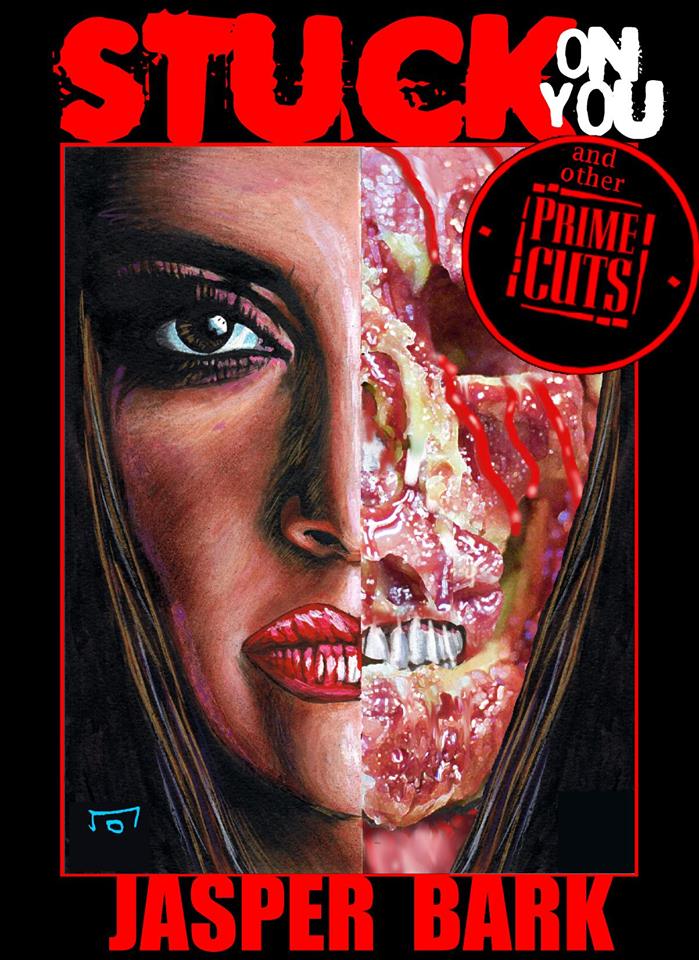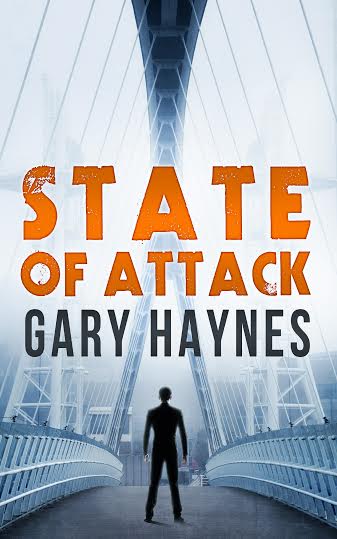
Welcome to this week’s installment of The Scariest Part, a recurring feature in which authors, comic book writers, filmmakers, and game creators tell us what scares them in their latest works of horror, dark fantasy, dark science fiction, and suspense. (If you’d like to be featured on The Scariest Part, please review the guidelines here.)
My guest is Mike Pace, whose latest novel is One to Go. Here is the publisher’s description:
Tom Booker is a new attorney at a powerful Washington law firm. Texting while driving across Memorial Bridge, he loses control and crashes into an oncoming minivan carrying his own daughter and three of her friends. The minivan tips up on two wheels, about to flip over into the Potomac. Time freezes, he’s alone on the bridge. A young couple approaches and offers him a re-wind. The crash would be averted, the children saved. All he must do is kill someone every two weeks – anyone — a “soul exchange.” A moment later, Tom is back in his spinning car, but averts the deadly crash. He laughs about the hallucination, attributing it to bumping his head on the steering wheel when his car came to an abrupt stop. But his encounter wasn’t a hallucination. Two weeks later, the minivan driver is brutally murdered. Tom receives a text: one down, four to go. He has never shot — much less owned — a gun in his life, and now must turn himself into a serial killer or his daughter and her friends will die.
And now, let’s hear what the scariest part was for Mike Pace:
As a father of three, what scared me was the core theme of the book: Would I really do anything to save my child?
It’s very easy to respond, “Of course. A parent would do anything to protect his children.” But put yourself in Tom Booker’s shoes.
Texting while driving, Tom causes an accident on Memorial Bridge with a minivan containing five innocents, including his own daughter, Janie. When he regains consciousness, time’s frozen. He sees the minivan holding the children tipped up on two wheels, gasoline running from the gas tank toward frozen flames licking out from under the hood. The van’s about to roll over the bridge into the Potomac River and explode in a ball of flame.
Then a young preppy couple jogs up and offers him a “rewind.” He can rewind time for a few seconds and save his daughter, but there’s a price — he has to kill five random strangers instead in a soul exchange.
So, what do you do? You agree to the deal. Of course, you agree to the deal. You hear a loud WHIRRING sound like an old-fashioned tape recorder re-winding. Suddenly, you’re back in your car and you jam on the brakes, slamming your head into the steering wheel, and you avoid the accident.
You laugh at yourself and the crazy hallucination. Must’ve happened when you hit your head. Preppy demons from hell; wait till you tell your buddies. They’ll laugh their asses off.
Then your sister-in-law, Rosie, the driver of the minivan dies a minute after the weekly deadline. Then you receive a text message from the demons: One down, four to go. My God, could the hallucination have been real? Can you take the chance?
The idea for the book germinated from a conversation I overheard while sitting in a suburban mall food court. A young mother at the next table told her friend she’d do anything to protect her child. That made me think of bears. How often we’ve seen reports of humans straying too close to a bear cub and unleashing the fury of the mama bear. (Lots of people have weird thoughts in a mall food court. Don’t they?)
Then the question arose: would she really do anything? I pushed the idea around in my head while finishing my Chick-fil-A. Yeah, parents would sacrifice their own life for the life of their child, and of course any parent would kill someone about to murder his son or daughter. That’s easy. So, I asked myself, what would make the parent hesitate? What about killing someone who was not threatening his child? What about murdering more than one fellow human being? Would a normal soccer mom become a serial killer to save her daughter? How many lives would she be willing to take?
Then to ratchet up the conflict, what if you weren’t absolutely 100 percent sure your child would die if you didn’t kill the other person? Oh, and what if there was a deadline, and while you were struggling with this impossible decision, the clock was ticking.
In order to frame this dilemma it was important that the protagonist not be a tough guy. Tom Booker is not Jack Reacher or Jason Bourne. Instead, he’s a middle-class guy who grew up in the safe suburbs, never got in trouble with the law, attended a good college, has a good job, on the upward track. He never went hunting, never held, much less shot, a firearm in his life. So not only does he have to answer the question, Do I kill another human being who is not threatening me because there’s a chance if I don’t my daughter might die, he also has to figure out how to become a serial killer without being caught.
And then overlaid across these conflicts is the larger moral dilemma; morality implicates religion, which is based on faith, not fact. Tom doesn’t face a situation where a bad guy is holding his daughter hostage and threatens to kill her if he doesn’t murder a specific target. The threat instead comes from supernatural figures, not flesh and blood. Which requires Tom to believe in the supernatural.
All told, I tried to devise the set-up in a way that would pose an impossible choice to me personally. I wouldn’t consider myself a tough guy. I have very little experience with firearms. Like most people, I think I follow the rules. Never been arrested, never been in jail. Safe childhood, safe life. And I love my children.
So the scariest part to me is putting myself in Tom’s shoes.
I have the gun in my hand, pointing it at another human being who, despite his sordid past has never done me or my family any harm. The clock’s ticking. Can I take a chance the whole demons from hell thing was a dream? Rosie’s death could’ve been a big fat coincidence. That’s why the word exists. A few more seconds and it’s too late — they said my child will die a gruesome death if I don’t pull the trigger.
Can I take a chance?
Tick tock, tick tock. Showtime. SHIIIIIIIT!!
Mike Pace: Website / Facebook / Twitter
One to Go: Amazon / Barnes & Noble / Powell’s / IndieBound
Mike Pace was born in Pittsburgh, Pennsylvania. He attended the University of Illinois on an art scholarship, and graduated with a BFA degree. He taught public school in Washington D.C.’s inner city, while attending law school at Georgetown University. At Georgetown he was selected to the editorial board of Georgetown’s law review. Upon graduation, he clerked for a federal judge in Washington. Thereafter, he was appointed to serve as an Assistant United States Attorney for the District of Columbia. In that position he prosecuted numerous cases, including those involving murder and rape. He left government service to join a large Washington law firm where he specialized in commercial litigation. He subsequently took a position as general counsel to a national environmental services company headquartered in Annapolis, MD. After several years, he resigned in order to practice law part time, thereby allowing him the time to devote to his first love, creative writing. His critically acclaimed first novel, Dead Light, was followed by the just-released One to Go. Mike lives on the Chesapeake Bay with his wife and two dogs, Blueberry and Scout.




